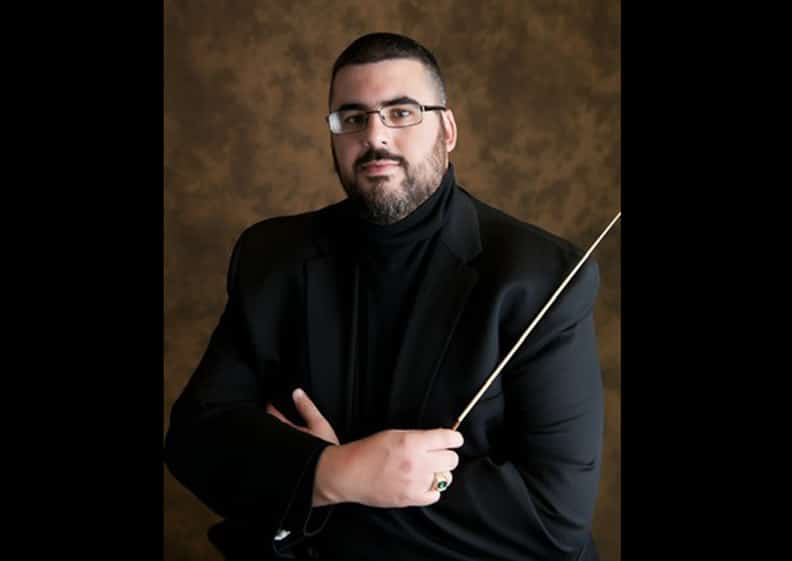Boycott Philharmonic appoints chief conductor
mainThe Malaysian Philharmonic, which is under an international musicians boycott for unfairly sacking US and European players, has announced the Brazilian Fabio Mechetti as principal conductor from next season.
Mechetti is music director of the Orquestra Filarmônica de Minas Gerais, Brazil, and of the Jacksonville Symphony Orchestra.
The MPO put out feelers to several bigger names to fill the vacancy, but were rebuffed.
Mechetti may face questions from his US players.






What is it with Brazilian conductors and their lack of tact and propriety?
Not only that, follow the link and take a look at the very long list of conductors and soloists setting aside their principles to collect (I’m sure) a hefty payment from the MPO.
You’re right!
*Vladimir Ashkenazy
*Sarah Chang
*Susan Graham
*Christopher Hogwood
*Janine Jansen
*Sumi Jo
*Fabio Luisi
*John Mauceri
*Gabriela Montero
*Jukka-Pekka Saraste
*Robert Spano
*Gábor Takács-Nagy
*Deborah Voigt
*Edo de Waart
First of all, the MPO management might have been ethically wrong for doing what it did, but currently, the musicians do not belong to a union and they sign two-year contracts with no guarantee of being renewed. At this point, frustration should be directed toward that system, and it should be improved moving forward. As for blaming all the guest artists for accepting work there, I can assure you that the musicians of the MPO wish nothing more than to have the finest conductors and guest artists working with them. As for the “international musicians boycott”, I can assure you that the musicians want nothing more than to recruit the very best players to their orchestra. It’s shit-disturbers like Norman who stand in the way of allowing the MPO musicians to hire great colleagues. It’s people like Norman who make it impossible for an organization like MPO to move forward. I’m certainly not condoning what happened there, and I don’t think any musician would, but perhaps more attention should be focused on all these American orchestras (where there actually ARE musicians unions and tenure track) and where seriously corrupt managements and boards preach “a new model” (usually without any actually evidence of needing one except for providing skewed financial stats) but really are just out to blatantly destroy the union and worsen working conditions and compensation for musicians. Are MPO musicians taking pay-cuts at every turn? I think not.
Johnny Longjohn says: “but perhaps more attention should be focused on all these American orchestras (where there actually ARE musicians unions and tenure track) and where seriously corrupt managements and boards preach “a new model” (usually without any actually evidence of needing one except for providing skewed financial stats)”
That describes exactly one American orchestra (Minnesota); the situation got an extraordinary amount attention all over the English-speaking world, especially here at Slipped Disc; and the management in question lost its battle and is being replaced.
This seems a somewhat risky move for Mechetti, but I know him to be a solid musician and a decent person, more than just a “Brazilian conductor”– and there are so many conductors lacking tact and propriety that it seems silly to characterize this as a Brazilian trait. All in all, it seems to me that he’s acted in his best interest, which is reasonable, and he could possibly bring some musical substance and normalcy to an otherwise chaotic professional landscape. What’s wrong with that?
The phrase ” laughing all the way to the bank” has rarely been so appropriate.
@Johnny LongJohn,
Yes actually the new 2014 contracts are even worse than the previous ones with a de-facto pay cut (reduced benefits)
But you are right, obviously the musicians and the management of the MPO are very different stories.
Surely the musicians want to move on, hoping for the best and just want to play great performances.
But the messy situation won’t fix itself.
You are blaming Mr. Lebrecht for reporting about what’s going on. In a rather rude way I may add.
Suggesting that Mr. Lebrecht is responsible for the fact that no clear-thinking musician wants to go to Malaysia after what happened; at least not for anything more than an extended vacation? Because Norman is telling about the conditions there; that musicians have zero job security, can get fired any time without any reason? Not just ‘can’ , they did it ! and showed every intention to do it again in the future.
May I also add that Mr. Lebrecht did not proclaim this boycott, but some of the most influential international musicians unions? For good reason? To warn People about this? Norman is just the messenger. And thanks for that!
Anyway, the MPO management is the only entity able to fix this and restore the reputation of the whole company. Maybe a decent (person) principal conductor can help to achieve this.
Reinstating the wrongfully dismissed musicians would be a start. Well, and giving out new contracts to all musicians reflecting the intention of permanent employment. If the working environment improves and the boycott is lifted I’m sure there is still potential for a bright future.
Surely a lot of things have to be fixed before the “very best players” will (again) be interested to work for the MPO. (for having zero job security and no pension MPO is simply not paying enough)
All this entirely up to the decision makers in Petronas and MPO management. Are they interested in fixing anything? So far it does not look like.
Mechetti’s last concert as the Music Director of Jacksonville was last month: http://jacksonville.com/entertainment/arts/2014-05-09/story/fabio-mechetti-will-end-time-principal-conductor-jacksonville
Indeed, Norman reported news of Mechetti’s replacement in Jacksonville, the lovely and talented Courtney Lewis.
What has happened with the Malaysian Phil has happened before. The ‘young’ Hong Kong Phil went through similar traumas in the early 1980s with a cavalier Music Director of no distinction dispensing with the services of a large number of overseas musicians. That case also went to court with the musicians being granted legal aid. However, after well over 5 years it all finally seemed to peter out. No-one got their jobs back.
In that case, the American Federation of Musicians was also quoted to have put a ban on US-based musicians joining the orchestra. It was mere words. Lots more Americans arrived, many very fine players. But the huge fuss this all created and the appointment of an experienced CEO who knew the business eventually led to greater security of employment, tenure, a superannuation scheme and more input from the musicians in some of the decision-making processes.
I am sure other ‘young’ orchestras have similar issues. The basic problem is surely a total lack of acceptance by Boards that they actually know nothing about running a full-time professional symphony orchestra. Yet, after the IMG Artists consultancy contract ran out, Petronas seems to have started putting in CEOs with no orchestral management experience and, worse, little interest in symphonic music. The vacuum that created was then taken up by the Music Directors who ended up with too much power. Boards must be made realise that no matter how good they are on the podium, Music Directors often have their own agendas which may not be in accordance with those of the orchestras they direct. An experienced, effective and enthusiastic CEO is vital to ensure such problems are tackled and dealt with long before they get into the public arena.
Nick, there might be some similarities with the HKG Phil in the 1980s but internet, Facebook, blog sites, forums etc. changed the landscape dramatically since.
With a few keystrokes it’s possible to share facts with thousands of other people online.
The fallout for a company like the MPO is way bigger now than it was possible back then.
The truth is out about the hostile working environment there; about not having any job security; about the many unilateral contract changes to the disadvantage of the musicians; the pay cuts, lost or reduced benefits.
Yes, IMG did know what is necessary to build an excellent reputation and to attract top level players from around the world.
All this was destroyed in very short time by people who thought they can run an orchestra like an oil rig.
In a very short time IMG managed to set up the best orchestra in the region but the people in charge afterwards managed to send it back into insignificance and virtual non-existence (about 40 vacancies in an orchestra originally ca 100 players strong)
Maybe things can be fixed or improve over time, but at the moment there are no signs for this.
It’s difficult to believe that a new principal conductor – even with best intentions – can achieve anything as long this malicious and unqualified management is running the show.
Nick, the Hong Kong Phil is largely privately funded, isn’t it? That would be one big difference from the Malaysian Phil right there.
I’f I’m remembering correctly, the Malaysian Philharmonic was very much a personal pet project of PM Mahathir, and I can’t say I’m surprised that it has suffered a lot of trouble since Mahathir retired.
Re MWNYC’s comments, on the contrary the HK Phil has always been very much government funded – somewhere in the region of 60% or more. The MPO along with the Concert Hall were indeed one of former PM Mahatir’s initiatives, large-scale projects like the Twin Towers and the Formula 1 Grand Prix that were designed to put Kuala Lumpur on the world map – but all were largely funded by the private sector. Mahatir merely twisted the arms of big business corporations like Petronas.
Surprisingly in a territory that was once called the last bastion of pure capitalism, the arts in Hong Kong have almost always been mostly controlled and funded by the government. There is a huge government department named the Leisure and Cultural Services Department that runs most of the arts venues and pays for most of the events which take place in them. To this existing huge portfolio will soon be added the various new venues (and presumably what takes place in them) in the West Kowloon Cultural District, one of the largest cultural developments anywhere at present.
Basically I agree with all you write. When a Board with little knowledge appoints Music Directors in whom it places absolute trust without realising that an experienced orchestral CEO is vital both to plan the future for the orchestra and to keep the MD in check, there is likely to be little if any improvement. It’s all very sad.